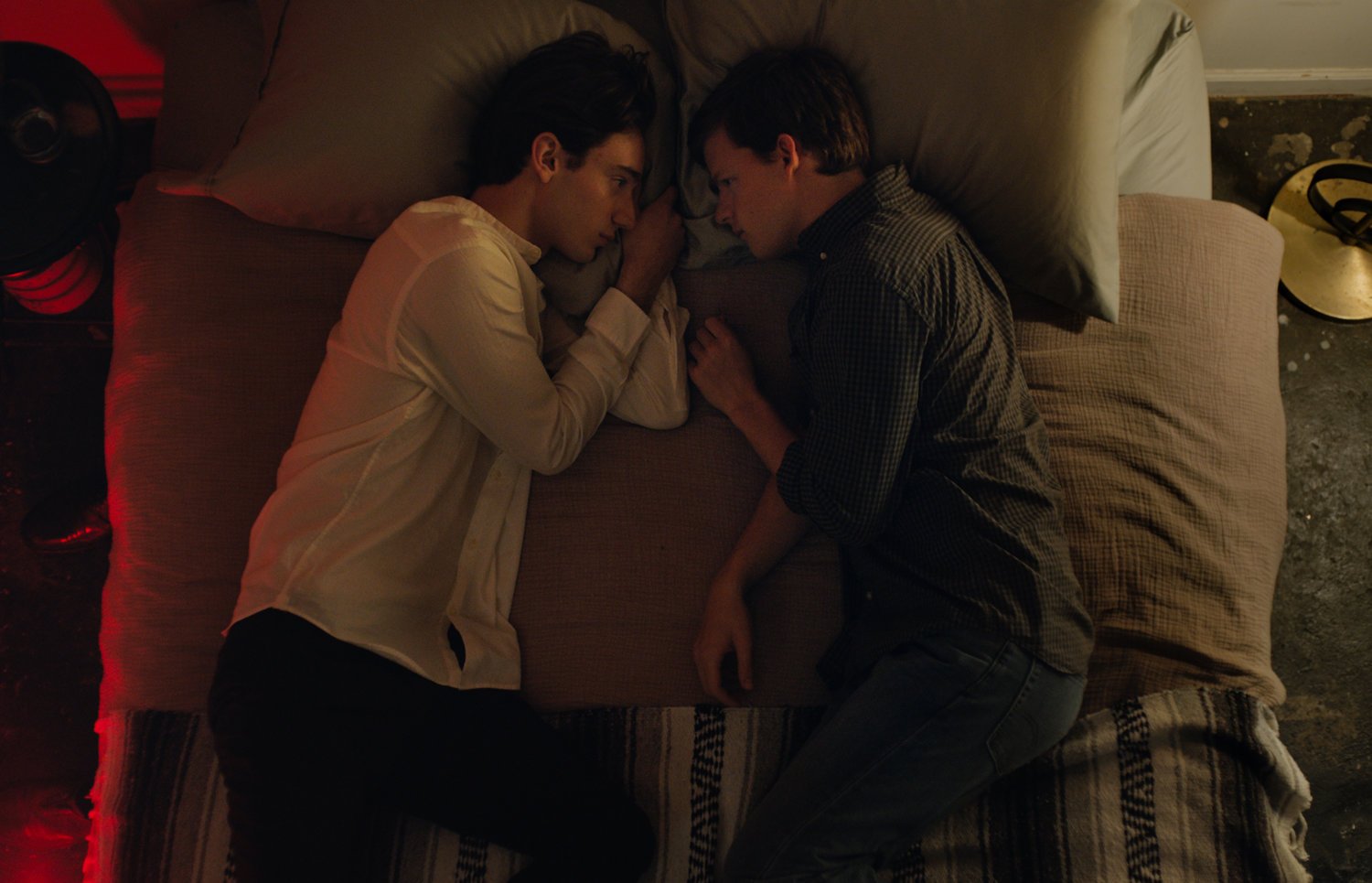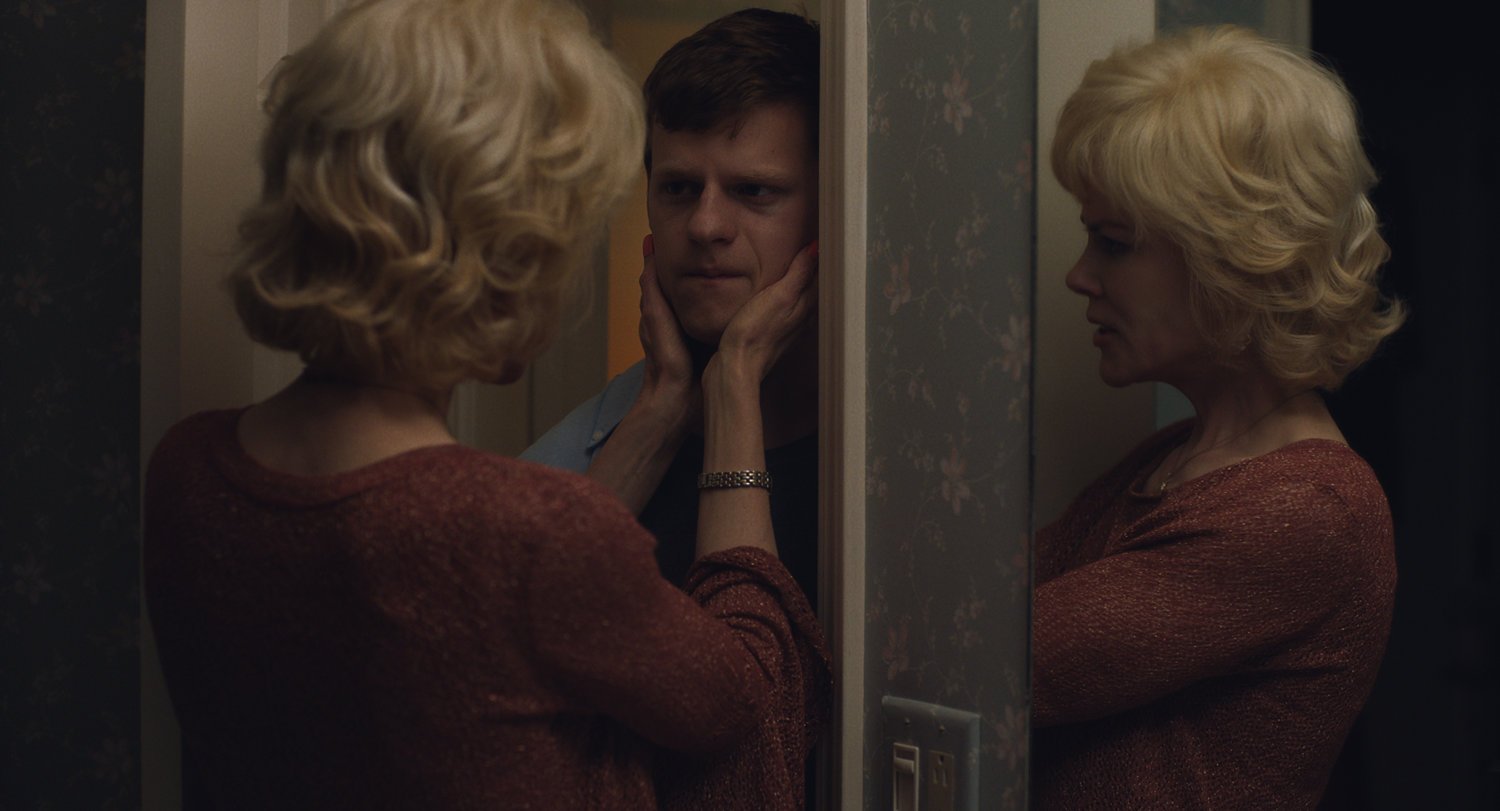Boy Erased is a Moving Portrait of Queer Resilience
FOCUS FEATURES
Southern queers would be right to greet the premise of Boy Erased with some reservation. Hollywood’s visions of the American South too often revert to the caricatures and clichés which proliferate in the desert of liberal self-congratulation: yes, we think, here is the corpulent and homophobic preacher, whose kindly eyes we know better than to credit. And here the neurotic blonde mom, immaculate French tips standing out against every surface. But despite the risk of cartoonishness, Boy Erased succeeds, anchored in powerful performances and in a near-documentary approach that unflinchingly uncovers the perversions and barbarity of conversion therapy, as it is still legally practiced in thirty-six states.
Adapted by Director Joel Edgerton from Garrard Conley’s 2016 memoir of the same name, the movie tells the story of Jared Eamons (played by Lucas Hedges), who, after being outed at college, is sent by his parents (Russell Crowe and Nicole Kidman) to a conversion therapy camp in Arkansas. The movie documents his day-to-day experience there, while depicting in flashback, the moments that led up to the crisis in which Jared now finds himself: an abortive sexual encounter with a high school girlfriend; a homoerotic relationship with a college acquaintance which soon turns dark and violent; and ultimately the revelation of Jared’s sexuality during a stay at home from college.
These scenes, and many others in the movie, are filmed with a tenderness and care that show us individuals grappling with experiences for which they have been in no way prepared. Lucas Hedges beautifully plays the coming-of-age of a gay boy, the way that moments of delight and sexual discovery are marbled with doubt, boyish curiosity undercut by confusion. All piety and polish, Nicole Kidman nails the inner conflict of a woman whose breeding dictates that so much be unsaid in a situation urgently calling out for honesty and candor; whose deference to her husband has endangered the son whom she so obviously loves. And Russell Crowe as the preacher-father is a stunning portrayal of moral cowardice: all body and yet somehow all shadow, he is literally hard to see, fading into the background of every shot he’s in, in contrast to Hedges and Kidman who shine increasingly brightly against their context. The message is clear: he is of this small-minded world, his son and wife merely in it.
FOCUS FEATURES
The camp itself is a stifling and khaki-colored brutality, administered by thugs. Flea (of Red Hot Chili Peppers fame) in particular gives a chilling performance as the camp’s enforcer, whose barely concealed hatred of the kids threatens to boil over into physical violence. One detail that resonated powerfully with me is that Jared’s ultimate refusal to convert is not just a version of his having been Born this Way (in a sense, the easy route for the film to have taken), but actually an active and self-aware resistance on his part. The movie is about Jared’s discovery of his own agency, and he is in many ways the agent of the change that occurs in others. The conversion, in other words, backfires. Because although he displays all the self-doubt typical of an eighteen-year-old gay boy, Jared Eamons does not hate himself, and it’s this crucial detail that carries the movie, converting its hideous content into an occasion for personal triumph.
There are rumblings in the homosphere of Boy Erased as another installment in the public’s long obsession with gay tragedy. But the fact that there are only the briefest representations of gay love and solidarity in the film is what illustrates to us the perversion of the world we are witnessing. While in classic pre-Stonewall cinema, characters met grisly ends in what audiences are meant to read as a restoration of the straight world order, in Boy Erased the negativity and violence our protagonist must endure is the evil and cowardice of his society writ small.
Boy Erased isn’t perfect; the first act has all the narrative momentum of a grocery list, as Edgerton methodically assembles the picture of Normal American Boyhood from which Jared’s sexuality will exile him, and its creative choices are mostly safe and expected. But the movie is redeemed by the humanity and depth of its performances, particularly revealed in the one-on-one scenes between Jared and his each of his parents, which Edgerton wisely gives space to breathe. It’s in these moments that the film moves past the barbarism of conversion therapy into a witness of more complex and humane conversions, namely those necessitated by love.
—
James Loop is a writer living in New York. You can find him online in Hyperallergic, the Lambda Literary Poetry Spotlight, and @jimmytheloop.
Archive
- September 2025
- August 2025
- May 2025
- February 2025
- November 2024
- October 2024
- September 2024
- August 2024
- July 2024
- June 2024
- May 2024
- April 2024
- October 2023
- July 2023
- June 2023
- May 2023
- April 2023
- March 2023
- February 2023
- June 2022
- April 2022
- March 2022
- January 2022
- December 2021
- October 2021
- September 2021
- August 2021
- July 2021
- June 2021
- May 2021
- April 2021
- March 2021
- February 2021
- January 2021
- December 2020
- October 2020
- September 2020
- August 2020
- July 2020
- June 2020
- May 2020
- April 2020
- March 2020
- February 2020
- January 2020
- December 2019
- November 2019
- October 2019
- September 2019
- August 2019
- July 2019
- June 2019
- May 2019
- April 2019
- March 2019
- February 2019
- January 2019
- December 2018
- November 2018
- October 2018
- September 2018
- August 2018
- July 2018
- June 2018
- May 2018
- April 2018
- March 2018
- February 2018
- January 2018
- December 2017
- November 2017
- October 2017
- September 2017
- August 2017
- July 2017
- June 2017
- May 2017
- April 2017
- March 2017
- February 2017
- January 2017
- December 2015
- November 2015
- October 2015
- September 2015
- August 2015
- July 2015
- June 2015
- May 2015
- April 2015









